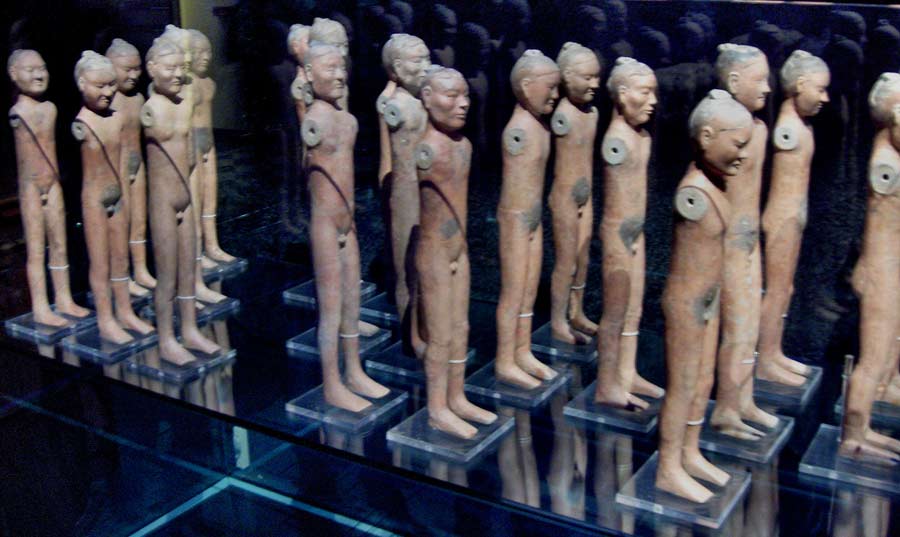The Western Han Dynasty lasted from 206 B.C. to 24 A.D. It is actually the second Dynasty established following the Qin Dynasty, but it was known as the first powerful and unified empire in the history of China. Two rebel leaders emerged to fight against the ruling empire. They were Xiang Yu of Chu, and Liu Bang of Han. Eventually, the two leaders faced each other in the Battle of Gaixia where Lui Bang defeated Xiang Yu. Liu Bang of Han became the first emperor of the Han Dynasty.
The new emperor, now called emperor Gaozu, reformed many of the policies and learning the lessons from the failed Qin Dynasty. He began to recruit people to work for his government based on their abilities and not on their birth right or wealth. He encouraged production in agriculture, and cut many taxes, and the economy began to recover. Supported by Emperor Gaozu, arts and culture also flourished.
With the death of Liu Bang, his son Liu Ying inherited the throne. But his mother, the Empress Lv Zhi remained in control of power and appointed a lot of her relatives into positions. This caused a revolt, leading to Lv Zhi death. When the empress was killed, Liu Qi (Emperor Wendi) and his son Emperor Jingdi both ascended the throne in succession and the both resumed the policies of Liu Bang, restoring power and wealth to China.
Emperor Jingdi’s son, Liu Che also known as Emperor Wudi led the Han Dynasty into one of its most powerful and prosperous period. Emperor Wu ruled the land actively, and carried out the ‘Tui En Ling’, a policy that strengthened the state by weakening the power of the feudal lords. It was in his time that he adopted the philosophy of Confucianism and rejected the other schools of thought. His military was powerful, defeating the Huns and conquering what is now North Korea. It was also during his reign that the famous Silk Road was opened, giving rise to trade and better relations with the other countries.
In the later years, the Western Han Dynasty began to decline. Emperor Yuan was too delicate as well as too kind which gave more power to the eunuch and the relatives of the empress. Then Emperor Chengdi came into power but he was more interested in women and wine so the dynasty fell even further.
By the end of the Western Han Dynasty, the child Liu Ying became emperor, but the Empress Dowager appointed on of her nephews named Wang Mang to act as the emperor while the young Liu Ying grows and comes to age. Wang Mang gave his word to step down once Liu Ying is old enough, but when the time came for him to relinquish the throne, Wang Mang broke the agreement, and proclaimed himself as the Emperor. This was the end of the Western Han Dynasty and the beginning of Xin Dynasty.
The Xin Dynasty under Wang Mang would not last long. The new emperor tried to make the Xin Dynasty successful by making major reforms in the policies, which ultimately failed. Wang Mang made a lot of enemies including the wealthy as well as the poor and he was then later defeated by a descendant of the Western Han Dynasty named Liu Xiu who became the next emperor, thus establishing the Eastern Han Dynasty.
The Western Han Dynasty lasted for over 200 years, and within this time, it has helped to shape the China we know today. The teachings of Confucius which was an integral part in this period is still being taught today, and the Silk Road became a pivotal part in trade connecting different parts of Asia as well as the western world. Many of the legacies left from this dynasty are still seen and felt today.
